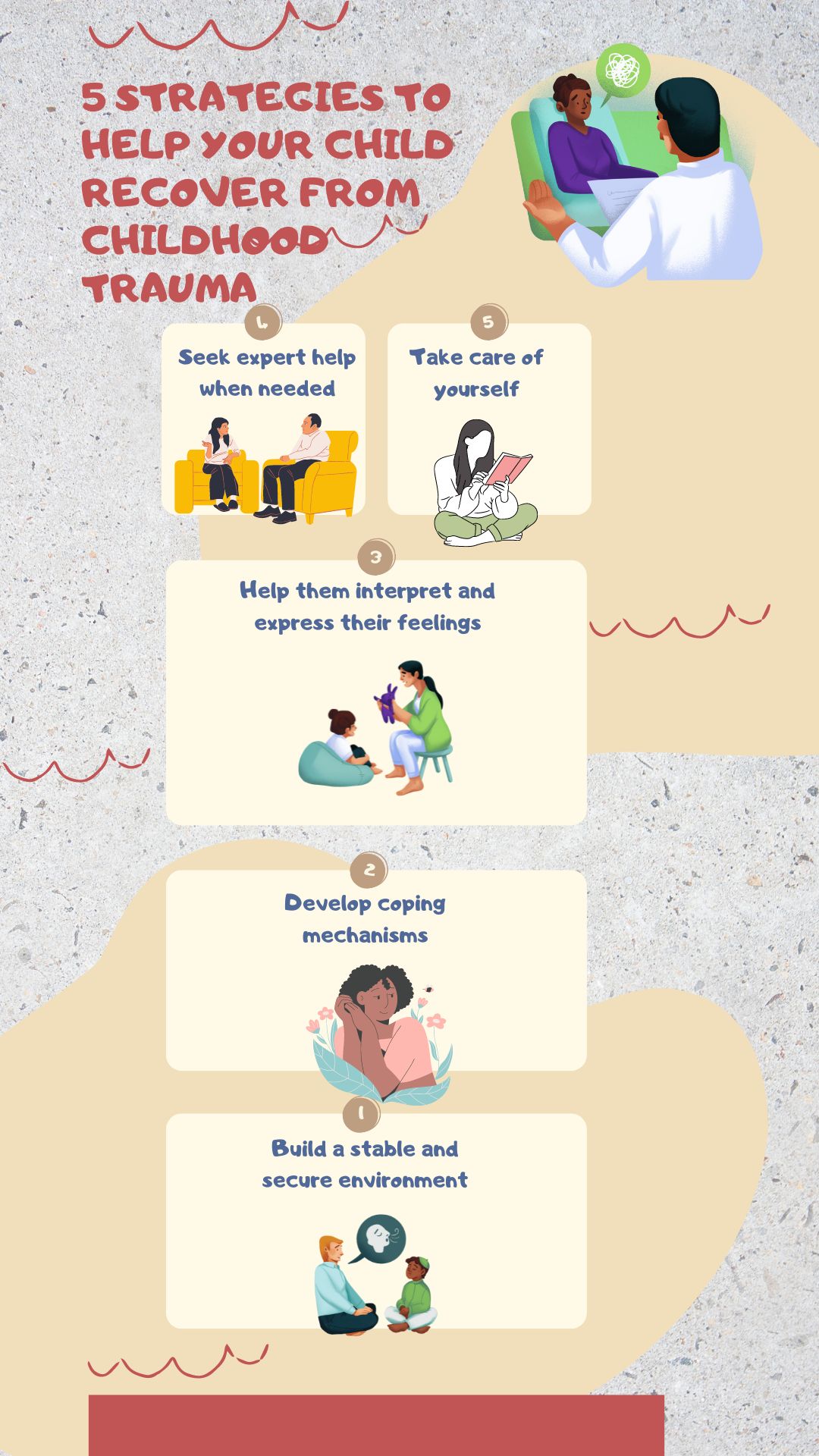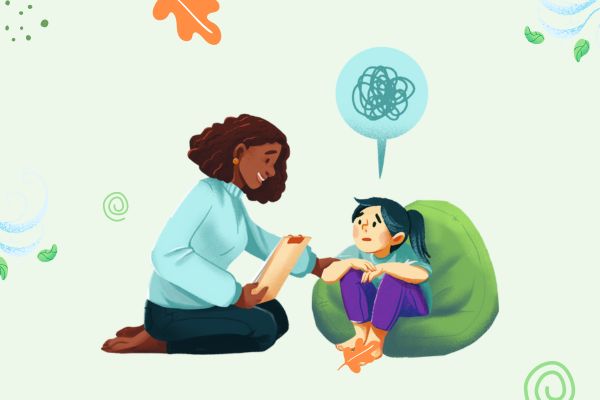Childhood trauma can encompass a wide range of experiences, from witnessing violence to neglect or abuse. Studies show that as many as 71% of all children will experience at least one traumatic event by the age of 17 [source]. These experiences can negatively impact a child’s emotional, physical, and social development for some time.
It’s important to understand that if your child has had a stroke you are not alone and there are things you can do to help their recovery. Here are five strategies to help your child:

#1. Build a stable and secure environment
- Routine is important: Young people enjoy continuity. Set regular times for eating, sleeping, and even playing. It restores stability and normalcy, especially in the wake of disturbing events.
- Please encourage your child to communicate openly and let them know that they can talk to you about anything, no matter how big or small. Please give them your full attention and respect their feelings.
- Be a Safe environment: Give your child physical attention, such as hugs and caressing, and establish an environment where they feel free to express themselves.
#2. Help them interpret and express their feelings
- Normalize their emotions: After a traumatic event, let your child know that it’s acceptable to feel scared, angry, or sad.
- Use age-appropriate language: Talk about their feelings in a way they can understand. Use picture books and basic language when talking to young children.
- Promote creative expression: Sports, music, and art can all be effective means for children to communicate complex emotions that may be challenging to express.
#3. Develop coping mechanisms
- Teach your child relaxation techniques: When your child is feeling overwhelmed, deep breathing techniques, progressive muscle relaxation, and mindfulness activities can help calm them.
- Develop good habits: A balanced diet, regular exercise, and good sleep habits can improve a child’s general health and ability to deal with stress.
- Problem-solving techniques: Help your child acquire the skills needed to deal with difficult situations. It may be beneficial to use role-playing scenarios to practice communication and conflict-resolution techniques.
#4. Seek expert help when needed
- Signs Your Child May Need Therapy: If your child is having trouble adjusting to everyday life, is having frequent nightmares, or withdraws from social situations, it’s time to get help. has come.
- Find a therapist well-versed in trauma: Professionals who specialize in treating childhood trauma can offer evidence-based methods to help your child meet their needs.
#5. Take care of yourself
- You can’t pour from an empty cup: Providing emotional support to a child suffering from trauma can be painful. Make sure you are taking care of your physical and emotional well-being.
- Establish your support network: Discuss your struggles and experiences with friends, family, or a therapist.
- Practice self-care: Engage in activities that help you relax and release stress, whether it’s reading a book, taking a bath, or spending time in nature.
Remember
Recovering from childhood trauma requires patience and time. Good days and bad days will come. You can assess your child’s progress by asking yourself the following questions:
- Does my child have better emotional regulation skills?
- Do they participate more in social events now?
- Do they sleep better now?
- Is their view of the future more optimistic?
If most of these questions are answered in the negative then it is time to get professional help.
Final Words
You can help your child overcome early trauma and develop future resilience by implementing these suggestions and creating a caring environment.





